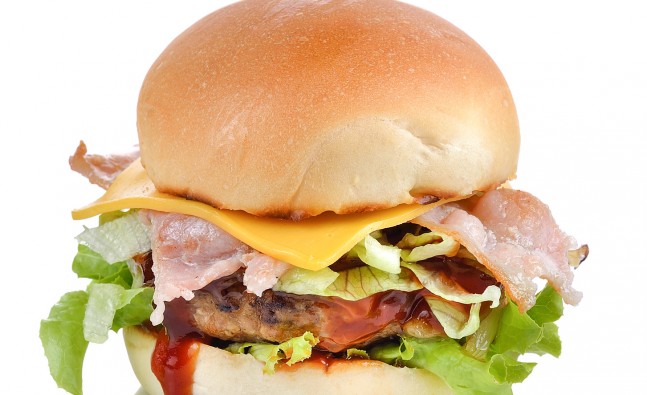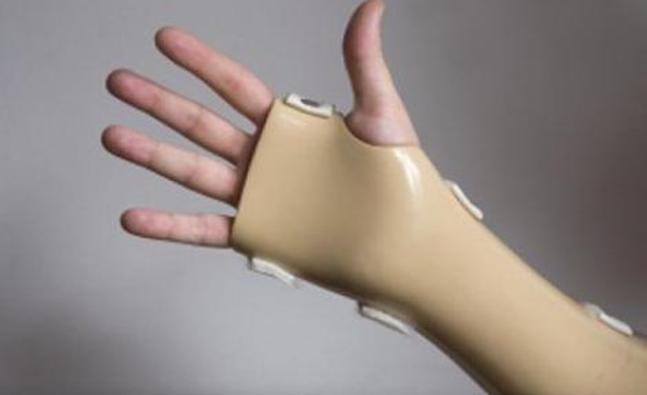Whats Up with The High-Fat Diet Trend—And Does It Work?
If you're looking for the trendiest diet since Paleo, this might be it—only with more fat, way less protein, and virtually zero carbs. The ketogenic diet, which has reportedly been used by celebs like Kim Kardashian and NBA player Lebron James, is a high-fat, low-protein, low-carbohydrate diet that was originally developed to treat epilepsy in children (experts can't say for sure why it reduces the frequency of seizures, but it does seem to work).
The whole diet is based on a process called ketosis, which is when your body is so depleted of carbs that your liver converts fat into fatty acids and ketone bodies, which can be used as energy, says Tracy A. Siegfried, M.D., medical director at The N.E.W. Program, a bariatric and metabolic weight-loss center in California. The ketones replace carbohydrates as your body’s main energy source, meaning you are running on (and burning) fat. To tell if your body is in a state of ketosis, you can measure your blood or urine for elevated levels of ketones (Ketostix, used to test keto-dieters ketone levels, are available at many pharmacies).
If this sounds familiar, it's probably because ketosis is also the goal of the first stage of the Atkins diet. But unlike the keto diet, the Atkins diet aims to get you into a mild state of ketosis and allows for more carbohydrates. In other words, keto is more hardcore.
So What the Heck Do You Eat?
To get your body to reach ketosis, 80 to 90 percent of the calories you consume should come from fat, and the rest should come from a combo of protein and carbs, says Siegfried. Plus, your carb intake is limited to 10 to 35 grams per day. That's roughly the amount in a single apple, glass of milk, or piece of bread. In fact, it's pretty much impossible to eat fruit or milk-based products without surpassing the amount of carbs needed to throw yourself into ketosis, says Susan Kleiner, Ph.D., R.D., author of Power Eating and a sports nutrition consultant to top NFL, NBA, and Olympic athletes.
Here's what you can eat: Lots of high-fat meat like beef, hot dogs, and bacon. A variety of oils and nuts are also up for grabs. Though veggies can edge you closer to breaking the carb bank, they're okay in moderation. Last but not least, moderate high-fat dairy like cheese is also good to go.
Kleiner says it's important to keep in mind that most people who say they follow the keto diet are actually doing some variation that allow fruits and lots of veggies, but that's not what the eating plan truly calls for.
Will It Help You Lose Weight?
As mentioned earlier, some research suggests that ketosis boosts weight loss because your body fat is burned off as energy. But other studies show that the diet works because you're limiting carbs and decreasing your cravings for them. That dip in your carb intake leads to fewer calories consumed and more weight loss, says Siegfried.
Additionally, by eliminating most carbs, including veggies and fruits, water weight falls off fast, says Lisa Dorfman, R.D., author of Legally Lean. She says that carbohydrates hold three times their weight in water while in your body, so when you deplete your body’s levels of carbohydrates, you lose a lot of water, too. On top of that, cutting out added sugars and salt from refined, processed carbs—and eating craving-crushing fats in nuts, meat, cheese, avocados, and eggs—can help you lose weight quickly, she says.
RELATED: Which is Better for Weight Loss: Low-Carb or Low-Fat?
Is It Safe?
Though the exact reasons why keto helps some lose weight is still up for debate, it can't hurt to try it, right? Well, it depends, says Siegfried.
“Most people can tolerate moderate ketosis, but most people will not be able to stick to a true ketogenic diet because of the side effects,” says Siegfried. Weakness, fatigue, and horrible B.O. and breath are classic bodily responses to a keto diet, she says. Yum.
Though the sleepiness and feebleness level off after the body acclimates to running on ketones, she says, even after you adjust, ketosis can interfere with your body’s ability to perform strength training and high-intensity exercise (both depend on stored carbs for fuel). So even though you may feel like you're working out at the highest level, your actual exertion is much less than it would be if you were eating carbs, says Kleiner
And while you might lose fat at first, without carbs, your metabolism can slow to a point where it's actually permanently damaged—and that's especially true for active and athletic women, she says. Here's why: When you train hard without carbs on board, your thyroid, basically your metabolism's boss, slows down the amount of energy (see: calories) available to burn during your workout. If you keep up the ketosis too long, it's hard to get your metabolism back on track, she says. Unfortunately, how long you can safely be in a state of ketosis depends on each person and can vary from a few days to a few months, says Kleiner.
RELATED: 7 Signs a Diet Will Just Leave You Hungry, Miserable—and Even Heavier
Over the long term, even more severe problems could plague keto dieters. “Some in the medical community think that continued ketosis is dangerous because it could stress out your liver and cause destruction to your muscle tissue,” says Siegfried. Other complications include constipation, hypoglycemia, vitamin deficiencies, kidney stones, balance issues, loss of bone density, headaches, light headedness, menstrual irregularities, and dehydration, she says. Plus, loading up on unhealthy sources of saturated fat or even O.D.-ing on healthy fat can lead to elevated cholesterol and blood pressure levels.
The bottom line: Like all extreme eating plans, the keto diet may help you drop a few pounds fast, but the repercussions for slashing your carb intake can seriously put your health at risk. While it might be tempting to use this eating plan as a quick fix, you're probably better off making healthy, sustainable changes to your diet.
-
Beware of fat free diets
-
Feel full with liquid based foods
-
7 Strength Moves That Will Help You Burn More Calories During Your Runs
If the sun’s out, you can pretty much guarantee that the running
-
Fighting fat daily
-
Yoga lowers BMI
-
Invest in losing weight and make it happen!
- DON'T MISS
- 15 Vegetables that burn calories
- 15 Minute workout
- 5 Anti-WEIGHT LOSS ingredients in your kitchen and what to use instead
- Try quinoa for weight loss
- 6 Tricks that may help you lose weight
- The Simple (and Fun!) Way to Fight Cravings
- Here’s Why Your Weight Goes Up and Down All the Damn Time
- 7 Unbelievably Simple Ways For Teenage Girls To Lose Weight
- Lose weight by eating beans, chickpeas and lentils
- Clenbuterol For Weight Loss – How It Works, Benefits And Drawbacks




